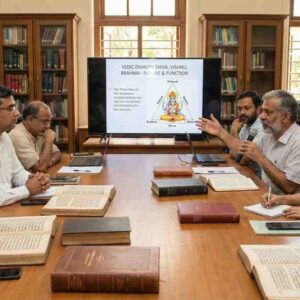Bringing Indigenous Stories to the Global Stage
Mumbai, India:Indian documentaries highlighting the lives, traditions, and struggles of tribal communities are receiving widespread recognition at international film festivals. These films delve into the rich cultural heritage of India’s indigenous populations while shedding light on their ongoing socio-political challenges. By weaving compelling narratives with breathtaking visuals, these documentaries are putting India’s tribal cultures in the global spotlight, sparking discussions on representation, sustainability, and justice.
Notable Documentaries Gaining Global Attention
“Echoes of the Forest”
- Directed by Anita Iyer, this documentary captures the Baiga tribe’s harmonious relationship with nature in Madhya Pradesh. Celebrated at the Toronto International Film Festival, the film highlights the tribe’s traditional practices and the existential threats they face due to deforestation.
“The Forgotten Guardians”
- A gripping story by Ravi Singh, this documentary showcases the Dongria Kondh tribe’s resistance to mining projects in Odisha. Premiered at the Berlin Film Festival, it has been praised for its unflinching depiction of community-led environmental activism.
“Songs of the Sand”
- Directed by Meera Patel, this Sundance-featured film explores the Bishnoi community’s commitment to ecological preservation in Rajasthan. The documentary offers a profound narrative on how ancient traditions can inspire modern environmental solutions.
The Importance of Tribal Documentaries
Preserving Heritage
- India is home to over 700 tribal communities, each with unique traditions and languages. These documentaries act as cultural archives, preserving their stories for future generations while celebrating their contributions to India’s identity.
Highlighting Social Injustice
- Many of these films bring attention to land disputes, displacement, and the exploitation of tribal resources. By amplifying tribal voices, filmmakers are challenging systemic inequalities and advocating for policy reforms.
Universal Appeal
- Themes of resilience, survival, and ecological harmony make these documentaries resonate with audiences globally, transcending cultural and geographic boundaries.
Challenges and Opportunities
Limited Reach Within India
- Despite international acclaim, these documentaries struggle to find visibility domestically due to limited distribution networks. Ensuring their accessibility to Indian audiences, including tribal communities, is a pressing need.
Avoiding Oversimplification
- Critics warn against portraying tribal communities solely as victims or as living in isolation, which risks perpetuating stereotypes. Authentic, nuanced storytelling is key to empowering narratives.
The Future of Tribal Documentaries in India
With increasing global recognition, Indian tribal documentaries are proving to be powerful tools for social awareness and cultural preservation. Collaborations with theMinistry of Tribal Affairsand partnerships with OTT platforms can enhance their domestic and international reach, ensuring their messages resonate with a broader audience.
As filmmakers continue to explore and document the richness of India’s tribal cultures, these narratives are shaping a more inclusive and authentic representation of the country on the global stage. These stories not only celebrate heritage but also challenge viewers to reconsider their understanding of progress and coexistence.













